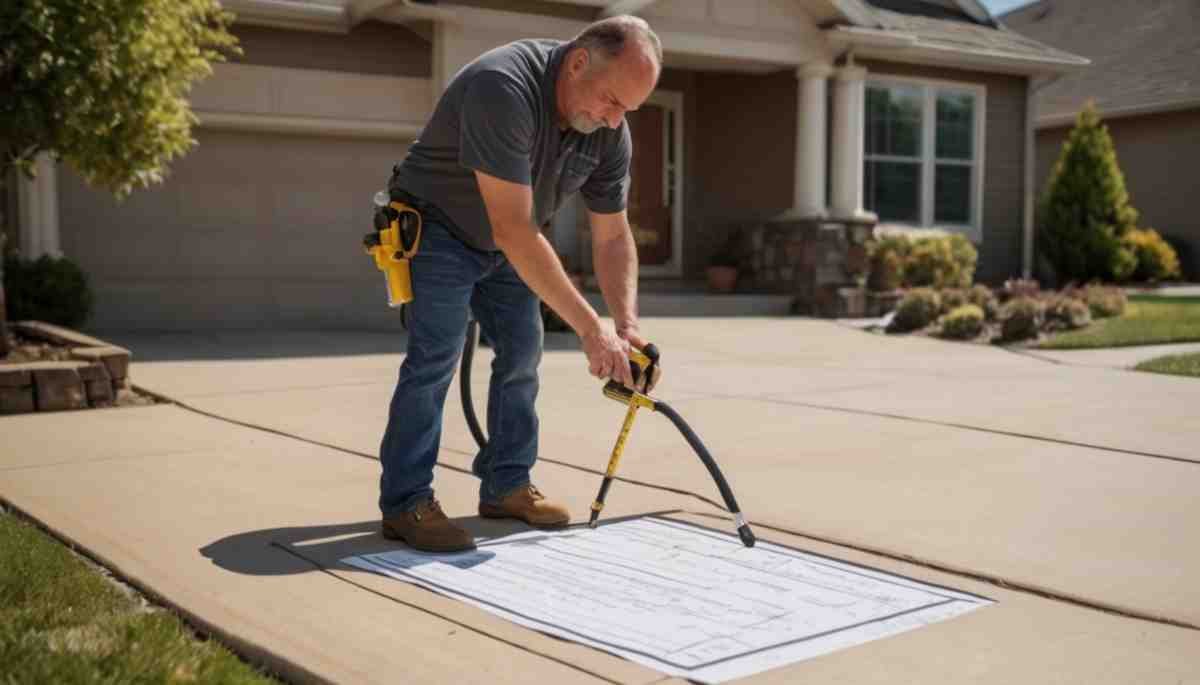Accurately calculating the amount of blacktop needed for your driveway can save you both time and money by ensuring you order the right amount of material from the start. By measuring your driveway’s length, width, and desired thickness, you can easily determine how much blacktop is required, avoiding costly overruns or material shortages.
Not only does this save money on excess material, but it also ensures a smoother and faster installation process. Using a blacktop calculator simplifies the math and guarantees precision, helping homeowners tackle their projects efficiently without breaking the bank.
1. What Is Blacktop and Why Is It Ideal for Driveways?
Blacktop, commonly referred to as asphalt, is a durable, weather-resistant material perfect for residential driveways. Unlike concrete, blacktop offers flexibility, making it less prone to cracking under temperature shifts and heavy loads. This makes it an excellent long-term investment for your home’s curb appeal and functionality.
Key Benefits:
- Cost-effective compared to other paving materials.
- Easy to install and maintain.
- Resistant to harsh weather conditions.
2. How to Calculate Blacktop for Your Driveway (Step-by-Step)
Calculating how much blacktop you need is simple if you know the key dimensions of your driveway. Here’s how to do it in three easy steps:
Step 1: Measure Your Driveway
Grab a tape measure and jot down the following:
- Length (in feet)
- Width (in feet)
- Desired thickness (in inches)
Step 2: Use the Blacktop Formula
To calculate the volume, use this formula: Volume (cubic feet) = Length × Width × Thickness (converted to feet)
Example Calculation:
- A driveway that is 40 feet long, 10 feet wide, and 3 inches thick would be:
- 40 × 10 × 0.25 = 100 cubic feet of blacktop required.
Step 3: Convert Cubic Feet to Tons
Since blacktop is measured by the ton, convert cubic feet to tons by multiplying by 0.057. This reflects the average weight of blacktop (145 lbs per cubic foot).
Example: 100 cubic feet × 0.057 = 5.7 tons of blacktop required.
For accuracy, I recommend using our Blacktop Calculator
3. Additional Factors to Consider
There are a few key factors that could influence the amount of blacktop required for your driveway:
Compaction
Blacktop compacts as it’s laid down, meaning the final layer will be slightly thinner than your original estimate. Be sure to order 5-10% extra material to compensate for compaction.
Irregular or Sloped Driveways
For curved or sloped driveways, more material may be required to ensure even coverage. Take care to measure the dimensions accurately, and if in doubt, consult with a contractor.
Thickness Considerations
Driveways typically range from 2 to 4 inches thick, depending on expected traffic. For residential use, 2.5 to 3 inches of blacktop is usually enough.

4. Estimating the Cost of Blacktop for Your Driveway
The cost of blacktop can vary based on several factors, including material prices and labor fees. Let’s break down the most important factors.
Material Costs
On average, blacktop costs about $2 to $4 per square foot, depending on your location and the quality of materials used.
Labor Costs
Expect to pay between $5 and $7 per square foot for professional installation. However, this can fluctuate depending on job complexity and regional labor rates.
Total Cost Estimation
Here’s a simple formula to calculate your overall blacktop project cost: Total Cost = Material Cost + Labor Cost × Driveway Square Feet
For a 500-square-foot driveway with material costs of $3 per square foot and labor at $6 per square foot: $3 + $6 = $9 per square foot Multiply that by 500: $9 × 500 = $4,500 total project cost.
5. Tools to Simplify Blacktop Calculation
Don’t want to crunch the numbers? No problem! Our Blacktop Calculator [insert link here] does the math for you. Just plug in the length, width, and thickness of your driveway, and it will calculate the exact amount of blacktop in tons, plus a cost estimate.
Why Use the Calculator?
- Accurate Results: Avoid over- or under-ordering material.
- Time-Saving: Instantly get the right amount without manual calculations.
- Cost Efficiency: Save money by ordering only what you need.
6. Common Mistakes to Avoid
- Forgetting Compaction: Always factor in an extra 5-10% for compaction, especially for thicker layers.
- Incorrect Measurements: Take precise measurements, especially for irregularly shaped driveways.
- Not Accounting for Waste: Always add a little extra blacktop in your order to account for material waste during installation.
Thank you for reading! If you’re interested in learning more about driveway maintenance, check out this post.
